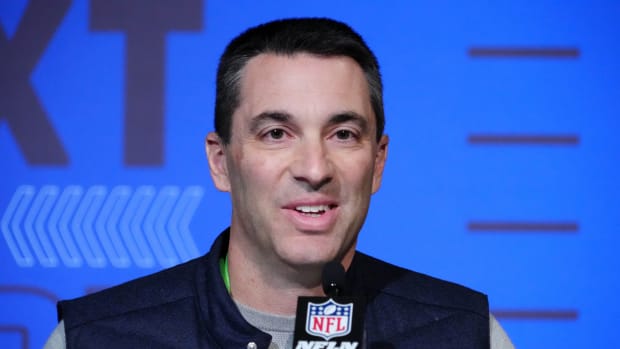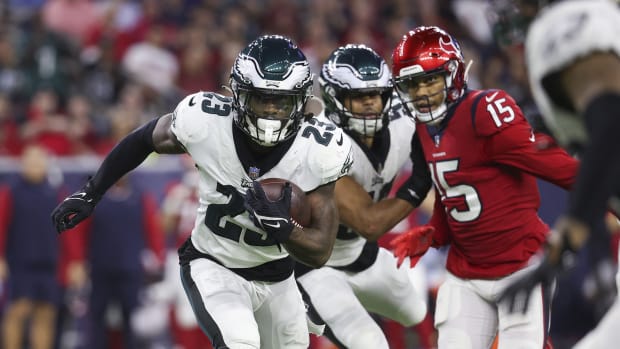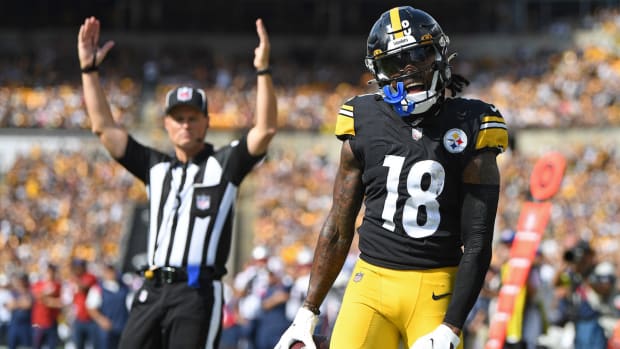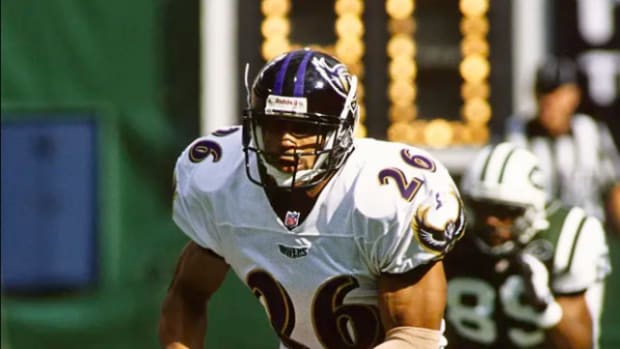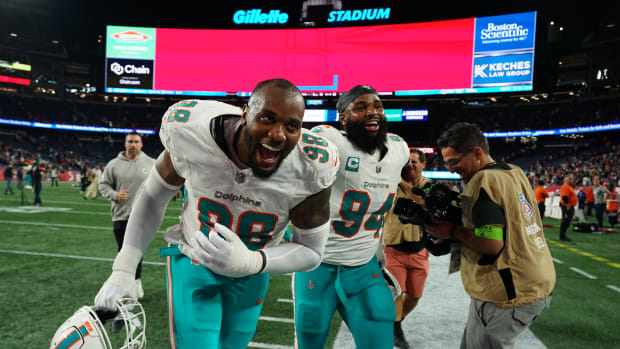The Myriad Potential Legal Implications of Cloudy Kliff Kingsbury Situation
The New York Jets and the Arizona Cardinals would like to interview Kliff Kingsbury for their vacant head coaching positions. Kingsbury, who was Texas Tech’s head coach from 2013 until his firing last November, already has a job. Last month he signed an employment contract with the University of Southern California to become the Trojans’ offensive coordinator.
In attempting to interview Kingsbury, both the Jets and Cardinals have followed a new league procedure. As reported by ESPN’s Adam Schefter, the NFL recently imposed a rule that requires NFL teams to request permission from the athletic director of a college for permission to interview. This request must be made before the NFL team can conduct the interview. A failure to make such a request can constitute “conduct detrimental” and lead to forfeiture of NFL draft picks. The rule also strongly encourages that NFL teams honor a denial by the athletic director.
The Jets and Cardinals asked USC athletic director Lynn Swann for permission to interview Kingsbury. At least initially, Swann said no. Pro Football Talk’s Mike Florio reports that Kingsbury might now walk away from his job at USC by buying out the remainder of his contract. On Monday afternoon, both Schefter and Fox Sports’s Jay Glazer reported that Kingsbury had begun to interview with NFL teams. Hours later, Bob McManaman of the Arizona Republic noted that Kingsbury’s name had been removed from USC’s website, though McManaman also reported that Kingsbury’s name is still listed in USC’s athletic directory. It appears that Kingsbury and the school have either negotiated his exit or that Swann has changed his mind. Either way, these are strange circumstances.
What ought to seem like an unremarkable situation—an NFL team wanting to interview a college coach about an open coaching job—has turned into quandary that, as explained below, raises both legal and business issues.
NFL anti-tampering policy and antitrust law
The granting of interviews for open NFL coaching jobs has long been a source of tension. This reflects the unique structure of a pro league where teams are competitors but also, for the sake of the league, collaborators, too. NFL teams obviously compete both on and off the field in hopes of winning a Super Bowl. The commissioner’s office, in contrast, is driven by a desire to maximize the league’s interests and to diminish disruptions to its business model. To that end, the league encourages, and sometimes requires, teams to accept rules that favor some teams over others.
Over the years, this dynamic has sparked various legal controversies, including over the distribution of revenue, the allocation of broadcasting rights and the sale of apparel. The basic tension stems from antitrust law, which is designed to promote economic competition. It mandates that competing businesses actually compete. The guiding principle of antitrust law is that competition leads to more innovation, better performance and superior outcomes for consumers of a particular product or service. When competitors instead conspire to diminish competition, consumers often pay more for a product or service or see slower improvement or technological progression.
When NFL teams agree to anti-competition rules that prevent, or limit opportunities, for talented assistant coaches to pursue head coaching jobs, there is a potential antitrust problem: NFL teams, and the consumers who support them, may be denied the chance of landing a superior coach. This, in turn, adversely impacts the team and its potential performance. To rebut this point, the NFL would argue that the league’s interests as a whole are enhanced when teams agree to not disrupt each other, such as by not by poaching each other’s coaches who are under contract.
With coaching opportunities, the NFL has promulgated rules that try to balance the interests of individual teams with those of the league and coaches. Teams want their coaches focused on their jobs, and not on speaking with rival teams about job openings and potential openings. Likewise, coaches sign employment contracts that require their loyalty. On the flip side, teams sometimes have coaching opportunities that would attract other teams’ coaches, who have professional interests in seeking to advance their careers.
BREER: Scouts Not Surprised that Kliff Kingsbury Is Attracting NFL Attention
To address these divergent motivations, the NFL has adopted a 21-page “anti-tampering policy.” The policy attempts to regulate how teams recruit persons employed by other teams. Those “persons” include players, coaches, executives and staff. With respect to coaches and other non-players, the policy intends to “to strike a balance between protecting the rights and maintaining the organizational stability of employer clubs” as well as “provide realistic advancement opportunities for employees if other clubs desire their services.”
To illustrate, the anti-tampering policy instructs that an NFL team which seeks to hire a head coach can’t contact an assistant coach who is under contract with another NFL team until after the regular season ends. The policy also dictates that if the assistant coach’s team fails to make the playoffs, another team has a right, until March 1, to discuss its head coaching position with the assistant coach. This means that a non-playoff team must allow its assistant coaches to interview for other teams’ head coaching jobs. After March 1, however, a requested team is under no obligation to grant permission.
Lateral moves are treated with greater restriction by the league’s anti-tampering policy. A team is under no obligation to grant a request by another team to interview an assistant coach for another assistant coach position.
The anti-tampering policy also contains an assortment of rules for interviews conducted during the postseason. These rules attempt to balance the interests of playoff teams while minimizing potential harm to the job opportunities for assistant coaches who are employed by playoff teams. After-all, it would be peculiar if assistant coaches on playoff teams can’t interview for head coaching jobs that are no longer available by the time the assistant coach’s playoff experience ends. One such rule is that an owner can contact the owner of another team to request written permission to discuss its head coaching position with an assistant coach. The other team’s owner, however, does not have to grant permission, though there is an industry practice that such granting occurs.
Assuming an interview is granted, the inquiring team may conduct one interview with the assistant coach at a location and time acceptable to the coach’s team. The timing, however, is further limited by whether a playoff team has a bye in the Wild Card weekend. If the team has a bye, any interview of its coaches must be conducted prior to the conclusion of Wild Card games; in contrast, if the team plays in a Wild Card game and advances to the Divisional Playoffs, the interview must be conducted after the Wild Card and before the Divisional Playoffs.
Given that eight NFL teams currently have head coach openings (not to mention accompanying assistant coach openings), the NFL’s anti-tampering policy has already played an important role. For instance, the Cleveland Browns reportedly denied requests by other teams who sought to interview offensive coordinator Freddie Kitchens for their offensive coordinator positions. As explained above, the Browns were under no obligation to grant interviews for a “lateral move.” If a team wishes to interview Kitchens, who has interviewed with the Browns for its open head coaching position, to become its head coach, the Browns would need to grant permission since the Brows aren’t in the playoffs. As another example, the New England Patriots, which earned a Wild Card bye, have permitted other teams to interview both offensive coordinator Josh McDaniels and de facto defensive coordinator Brian Flores for their open head coaching positions—but such interviews must follow the timing rules described above.
The legacy of Bill Belichick’s antitrust lawsuit over two teams that sought to make him “HC”
While the league’s anti-tampering policy may not be perfect, it attempts to strike a reasonable balance between conflicting interests. The league also knows from its own history that tampering and overtures can lead to antitrust disputes. In January of 2000, Bill Belichick filed a federal antitrust lawsuit against both the league and the Jets over the inability of the Patriots to hire him as head coach.
From 1997 to 1999, Belichick had served as assistant head coach and defensive coordinator under Jets head coach Bill Parcells. Belichick’s six-year employment contract with the Jets dictated that he would automatically become head coach if Parcells stepped down. Towards the end of the 1999 season, there were rumors that the Patriots planned to fire Pete Carroll as head coach and hire Belichick, who had served as Patriots defensive coordinator in 1996 and was well-liked by Patriots owner Robert Kraft, to replace Carroll.
As expected, the Patriots fired head coach Carroll, with the firing occurring on Jan. 3, 2000. Parcells, who three years earlier had quit the Patriots for the Jets amidst controversy, then immediately quit as Jets head coach. By quitting, Parcells, who also served as the Jets general manager, contractually blocked Belichick—who, per his contract, was elevated to head coach—from joining the Patriots. A day later, however, Belichick quit as Jets head coach. He famously wrote a note saying, “I resign as HC of the NYJ” and in abrupt press conference, Belichick cited changes in Jets ownership (in 1999, Woody Johnson had become owner after Leon Hess passed away) as a justification for leaving the position. Belichick then attempted to join the Patriots.
NFL commissioner Paul Tagliabue prevented Belichick from doing so. Tagliabue ruled that Belichick had to honor his Jets contract and thus could not join the Patriots in the absence of permission from the Jets. In response, Belichick filed an antitrust lawsuit, which was drafted by attorney Jeffrey Kessler—the same Jeffrey Kessler who 15 years later would represent Tom Brady in his Deflategate litigation against the NFL.
Kahler: Five Under-the-Radar Head Coaching Candidates
Belichick’s federal complaint argued that “the NFL and its member teams exercise monopoly power” over the employment market for “major league professional football coaches” in the United States. Further, the complaint contended, the NFL and its teams had engaged in “a group boycott of Mr. Belichick’s services” in violation of the Sherman Antitrust Act. Belichick’s basic contention was that his inability to be considered for the open Patriots position reflected league policies that unlawfully interfered with the free movement of coaches.
The NFL responded to the litigation by attempting to work out a solution where the Patriots would compensate the Jets in order to hire Belichick. A few days after the lawsuit was filed it was voluntarily dismissed. The Patriots agreed to send three draft picks to the Jets for two draft picks and the right to hire Belichick. Obviously, it proved to be a wise move, as Belichick has since coached the team to five Super Bowl victories. For the league, however, this intra-league squabble was exactly what it wants to avoid: a high-profile dispute between teams that works its way to the courts. The anti-tampering policy is intended to ensure that competing teams can play by predictable (if anti-competitive) rules of engagement and avoid these sorts of conflicts.
Potential antitrust problems with expansion of NFL anti-tampering policy to college coaches
The league’s anti-tampering policy now contains language concerning teams’ pursuit of college coaches. It states that the NFL “respects employment agreements entered into between colleges and their coaches and other employees.”
Pursuant to this “respect,” the policy instructs that before an NFL team can discuss a coaching position with a college coach it must first determine whether the coach is under contract with the college. If the coach is under contract, the NFL team must seek permission from the college’s athletic director. Such a request must be made before any communications with the coach. If permission is granted, the team can then interview and hire the coach. A hiring would obviously need to comport to any contractual requirements between the coach and the college. For instance, the coach might be required to pay a penalty to leave (breach) the college contract. Such penalty could be worded as a buyout or a liquidated damages provision.
If the athletic director refuses to grant permission, then what might now be described as a “Kingsbury situation” would surface. According to the NFL’s policy, “if permission is denied, the NFL club should respect that decision just as it would respect a similar decision from another NFL club. NFL clubs that fail to follow these protocols may be subject to disciplinary action for conduct detrimental to the League.”
The use of the word “should” rather than “must” could give an NFL team contractual wiggle room if it wanted to test whether the league would impose sanctions for interviewing a college coach. It’s doubtful, though, that a team would pursue such a strategy, since it would probably invite scorn from the NFL and disruption to the team’s coaching search.
ORR: Ravens Could Look Quite Different at the Start of Next Season
The NFL’s decision to protect colleges from losing coaches could nonetheless present an antitrust problem. Granted, it’s unlikely that a college coach would bring a lawsuit—if the coach did so, the coach might be labeled “litigious” and thus find it harder to secure a job. Still, a coach denied the chance to interview with an NFL team could persuasively highlight that the NFL and college football are competing businesses: both provide high-level football and both, to some degree, compete over football fans’ attention and money. Under antitrust law, the NFL should compete with college football. If it doesn’t, the question of “why” surfaces.
To that point, a college coach such as Kingsbury could assert that the NFL and college football have a history of avoiding competition for mutual benefit and fan detriment. Take the NFL’s collectively-bargained age eligibility rule. The rule requires that players be three years out of high school before they are eligible for the NFL. Given that there is no viable alternative to “big time” college football for elite players who are age ineligible for the NFL, those players essentially must play as amateurs in college in order to develop their skills. This dynamic works well for the NFL and its owners, since college football serves as a free minor league system. Indeed, young players develop in college without any cost to the NFL. It’s also good for college football since elite young players generate substantial revenue for their schools, conferences and the NCAA.
You might argue that an 18- or 19-year-old should not play in the NFL for health reasons, but that argument does not always apply—consider running back Leonard Fournette, who as an LSU sophomore in 2015 was generally regarded as physically ready to play in the NFL. It’s also worth noting that the NFL has not always prioritized player safety (see NFL concussion litigation).
The point here would be that a college coach could raise antitrust-related suspicions about why the NFL would choose to help college football teams keep their coaches.
California’s policy against non-compete agreements could also prove relevant
Kingsbury’s contract with USC, a private school, is not publicly available. The contract, however, reportedly contains provisions that would allow Kingsbury to exit (or buy out) the remainder of the deal by paying USC a penalty.
If a penalty provision also contains language that would forbid Kingsbury from taking on another coaching provision, that language would likely be in the form of a “non-compete” agreement. It’s unlikely such language would exist, however, since California Business and Professions Code §16600 makes clear that it would be unenforceable. According to this statute, “every contract by which anyone is restrained from engaging in a lawful profession, trade, or business of any kind is to that extent void.” Even if Kingsbury’s contract contains a choice of law provision that indicates California law does not apply, California courts have repeatedly found such a provision does not overcome the state’s policy against non-compete agreements.
USC and Swann have their reputations to consider
Outside of legal issues, USC and Swann’s decision on whether to allow Kingsbury to interview with NFL teams could have repercussions down the line. It’s understandable for an employer to insist that a contracted employee must honor his or her contract. Here, USC could assert that its upcoming season would be harmed if it lost its offensive coordinator and had to now pursue a replacement. Yet if other coaches worry that USC would prevent them from seeking preferred jobs, candidates who are considering coaching offers from USC might hesitate to accept. They might also wonder why Swann, who played in the NFL for nine seasons, would prevent a coach from pursuing a superior job in the NFL.
Whether NFL teams should pursue Kingsbury is an altogether separate matter. He has his fair share of critics, particularly those who saw the Red Raiders struggle over the last few seasons. Yet the 39-year-old former star quarterback at Texas Tech is considered an innovative mind on offense. He also coached Patrick Mahomes at Texas Tech and has some NFL playing experience—between 2003 and 2005 he played (albeit sparingly) for the Patriots, which drafted Kingsbury in the sixth round of the 2003 NFL draft, the Jets and Denver Broncos.
The MMQB will keep you updated on Kingsbury and legal issues in coaching interviews.
Michael McCann is SI’s legal analyst. He is also Associate Dean of the University of New Hampshire School of Law and editor and co-author of The Oxford Handbook of American Sports Law and Court Justice: The Inside Story of My Battle Against the NCAA.

































